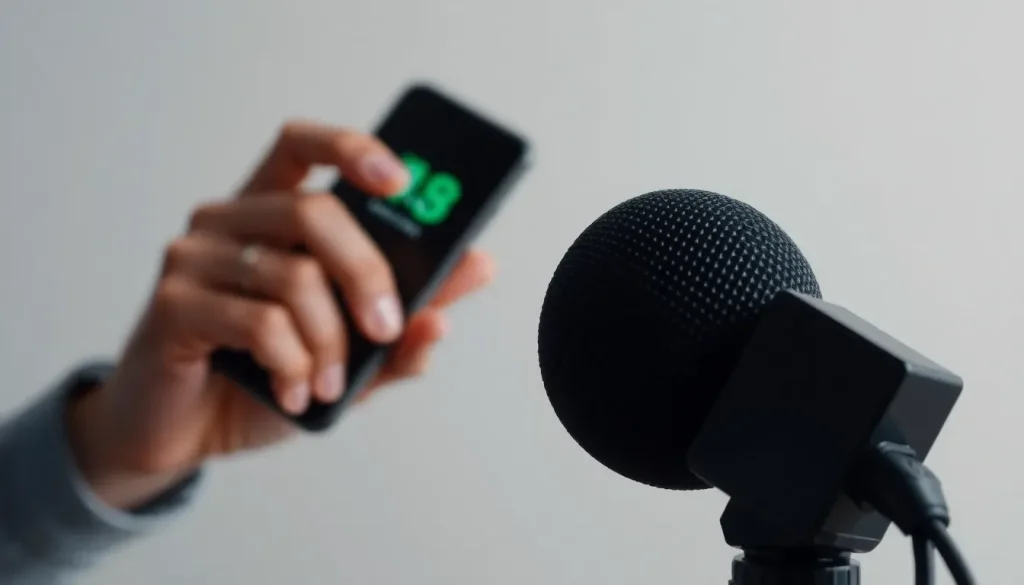Viral call recording app shut down for exposing user data

In an era where personal data is more valuable than ever, a new app has emerged that both intrigued and alarmed users. Neon, an application promising monetary rewards for sharing recorded phone calls, has recently been embroiled in controversy due to significant security lapses. The implications of this incident extend beyond the app itself, raising important questions about privacy and data protection in the digital age.
Neon, which had gained traction rapidly, claimed to offer users the chance to earn “hundreds or even thousands of dollars per year” by sharing their recorded conversations. However, this model of monetizing user data has now led to serious repercussions. The app, once ranked high on the App Store, has gone offline following the revelation of a severe security breach that exposed sensitive user information.
Understanding Neon and Its Business Model
Neon operated on a unique premise: users recorded their phone calls and shared the audio files with the app, which in turn sold this data to artificial intelligence companies. This approach raised eyebrows not only for its ethical implications but also for its potential to violate user privacy. As users engaged with the app, the promise of monetary rewards overshadowed concerns about data security.
At its peak, Neon ranked 7th in the free apps category and 2nd in social networking on the App Store. This rapid ascent highlighted a growing trend among users keen to monetize their data, but it also exposed them to risks that many may not have fully understood.
Identifying the Security Flaw
The downfall of Neon began with an investigative piece from TechCrunch, which delved into the app's inner workings. Journalists discovered a shocking vulnerability that allowed them to access not only their own call data but also information from other users. By exploiting a flaw in Neon's security protocols, they managed to retrieve:
- User phone numbers
- Call recordings
- Transcripts of conversations
- Call metadata, including duration and earnings
This breach revealed an alarming lack of security measures in place to protect user data. The implications were profound, considering that sensitive information was accessible to anyone who could exploit the app's vulnerabilities.
Consequences of the Data Breach
As details of the breach emerged, it became apparent that some users were attempting to manipulate the system. Reports indicated that certain individuals were secretly recording conversations with others who were unaware, seeking to maximize their earnings from the app. This behavior not only violated ethical standards but also highlighted the potential for abuse in a system built on user-generated content.
Upon being alerted to the security issue, Neon’s founder, Alex Kiam, acted quickly to take the app offline. In communication with users, he emphasized the importance of data privacy, stating:
“Your data privacy is our number one priority, and we want to make sure it is fully secure even during this period of rapid growth.”
However, Kiam did not explicitly mention the nature of the data breach, which left many users concerned about their information's safety.
The Response from App Stores
Following the incident, TechCrunch reached out to both Apple and Google to discuss the implications for the app and its users. As of now, there has been no response from the tech giants regarding the potential ramifications of this security breach or the future of Neon in their app stores.
This situation raises critical questions about the responsibilities of app developers and the platforms that host them. Are companies doing enough to safeguard user data? What measures can be implemented to prevent similar breaches in the future?
Broader Implications for User Privacy
The Neon app incident serves as a stark reminder of the vulnerabilities present in today’s digital landscape. As more users engage with applications that incentivize data sharing, the risks associated with privacy breaches become increasingly significant. Here are some key considerations:
- Informed Consent: Users must be fully aware of what they are agreeing to when sharing their data.
- Data Encryption: Apps should implement robust encryption methods to protect user data from unauthorized access.
- Transparency: Developers need to be transparent about how user data is used and shared.
- Regulatory Compliance: Adherence to data protection regulations, such as GDPR, is essential for building user trust.
Future of Call Recording Apps
The incident with Neon may signal a turning point for call recording applications. With increased scrutiny from both users and regulatory bodies, developers will need to prioritize security and user trust in their business models. The call recording landscape could see significant changes, with many apps potentially facing stricter guidelines on data handling and user privacy.
In the wake of the Neon breach, users are left to ponder their options. Those who downloaded the app may find themselves questioning their decisions, considering how easily their data was compromised. As technology continues to advance, the balance between innovation and privacy will remain a critical focus.
For those interested in the topic and wishing to explore similar issues, a relevant video discussing the broader implications of privacy breaches can be found below:
Conclusion: A Call for Better Practices
As the digital landscape evolves, the need for better practices regarding user privacy and data security has never been more pressing. The Neon app incident provides a critical lesson for both developers and users alike, emphasizing the importance of vigilance in safeguarding personal information. Moving forward, it will be essential for all stakeholders to advocate for safer, more secure digital interactions.




Leave a Reply